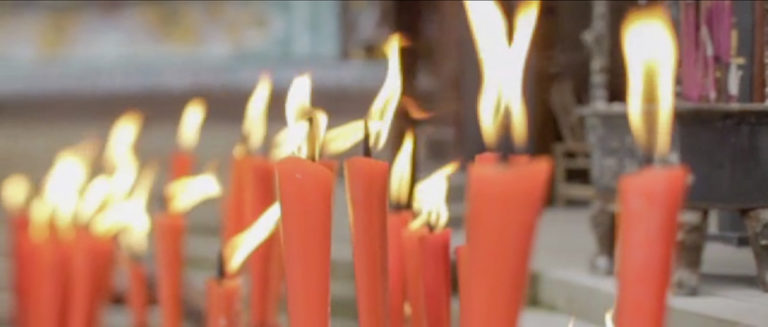I am a stranger in a strange land. I need connections or I will wither and die. And the connections I need are not just with my native people, or with people similar to me, but with the people who inhabit this strange land. I learned to speak Chinese out of survival instinct and I speak with everyone I can, randomly, impulsively, to maintain a healthy equilibrium. A constant contact that helps bouy me when my spirits sink.
I read of the toxic culture that poisons the ability of Mexicans, among others, to pursue happiness in the US, but so far there is little in the way of scholarly studies on the level of toxicity in China’s culture. Perhaps because the immigrant population is so low. But we all know about the China Blues. For years I relied upon taxi drivers, one-second encounters, and a potpourri of interactions with young, old, male, female. When in dire straits, I headed to the Tibetan district in Chengdu – or if I were lucky enough, a trip to western Sichuan’s Tibetan regions – to lift me up when I was down. I could always count on a nod being met with a nod, a wink with a smile, a gaze with understanding.
But I’ve noticed something over the years … some Tibetans don’t nod anymore. And some of them even meet my overtures, my pleas actually, with hostility. And I am trying to figure out what happened.
Ghetto Living
Have any of you white people out there who consider yourselves liberal and open-minded ever walked through a black ghetto nodding at every person you met? Probably not. Because you know that you might meet hostility or, at the very least, ridicule. Why is that? The true enemy of the black ghetto is the system, the cycle of drugs and violence and the desperation and fury that tags along behind institutional racism. Not liberal white people. But it’s a war that we don’t know much about and can never truly relate to. So our efforts to make contact are often rebuffed. Not always. But often enough.
I wonder if some Tibetans out there – the broke, desperate, furious ones – feel a sneering contempt for Western saviors who roll through the regions with a camera and a pen, or an aid program. We don’t stick around. When we leave the plainsclothes policeman detaches himself from the shadows and pays a visit; the apparatchik in the monastery calls a meeting that all monks must attend; the cops pull their van up to the main square and park. Smoke cigarettes and eye the locals.
I once interviewed a Uigher potter in Kashgar and when I came back the next day, his door was boarded up and no one was out on the street, where once a gaggle of kids and moms had watched me, poked me, laughed at how I spoke.
An internal fight, an internal peace
I have noticed a marked increase in the Tibetan population in Chengdu. It’s only something a longterm resident could notice. A few more chupa wearing couples at the bus stop, a few more groups of weatherbeaten faces on the streets, more monks and more nuns. I also notice the heavy police presence in the Tibetan district and even downtown during the month of March, but when I look closely at the Tibetan families shopping for iPhones on the First Ring Road, strolling along the Fu Nan River or waiting for a cab with loaded shopping bags, I fail to see what we in the West have been trained to see.
I see people living their lives, not rebels suffering under draconian oppression. I don’t believe that the rebellion is dead or the oppression has lifted; rather, it seems as if the people are living in the cities, even as the mountains and valleys of the Tibetan regions seethe with discontent.
The complexity of life for a Tibetan in China – unable to leave, desperate to remain Tibetan – makes for complex responses to Western overtures. Conspiratorial winks are more about how we feel and not how Tibetans live.
Meaning
It may be hard for us to accept this reality. It would feel better if good were facing evil and we were on the right side. It would feel better if every wink was laden with purpose and meaning and the sweet, heady scent of covert revolution. But it may not be and I need to prepare for that spiritually. Just like the Tibetans are …
And yes they are preparing for a future without the Dalai, a future with the Party as the undisputed boss. Self-immolations are cries of desperation and they may be followed by violence, or crackdowns or even international events and scrutiny. But who can deny that the Chinese state is the python, the Tibetan regions a rodent struggling as the coils tighten?
Is that what is happening here? Is that why the young Khampas – to my eyes obvious nomads, as opposed to wealthy Lhasa tourists or for what passes as middle class Tibetan families – give the hard eye when I nod at them? Is that why some monks smile patronizingly down upon my wink? Perhaps I am imagining all of this.
But I know I’m not.
Internal Tibetan conversations might sound like KRS-1 calling for blacks to “Visualize wealth, put yourself in the picture,” instead of the violent, rebellious gangsta rap that might sell more records, but has failed to provide an escape from the system.
A darker alternative
Or it could be something much simpler. Desperate people all over the world carry a bitterness around for anyone that isn’t a bona fide member of the clan that can quickly turn into a violent act. Think of how good it would feel for a ritually oppressed person to destroy something. Sure, the Dalai Lama and many others hope wisdom prevails and bloodshed can be avoided, but the youth have no patience for that.
I was talking with an American teacher here who is convinced that the liberal philosophy of the Occupy Wall Street Movement will become mainstream in a few years and if we all just have the patience to wait this chaos out, things will get better. Reasonable. I wonder if a similar argument could convince Tibetans on the ground in Ganzi and Aba. They may hear about Sino-Tibetans friendships in big cities like Chengdu and the benefits to be reaped from such peaceful relationships, but can they envision anything like that happening in the towns and villages far from the “enlightened urbanity” of middle class China?
Maybe this hardness I detect is the precursor to even more desperate measures in which the flames are directed outward. Maybe the internal Tibetan conversations are riven with uncertainty, anger, hope, desperation and fear as sons scream at their fathers for action while mothers plead for peace.
All I know is that I am not included and probably never was.







One thought on “Don’t wink at me”